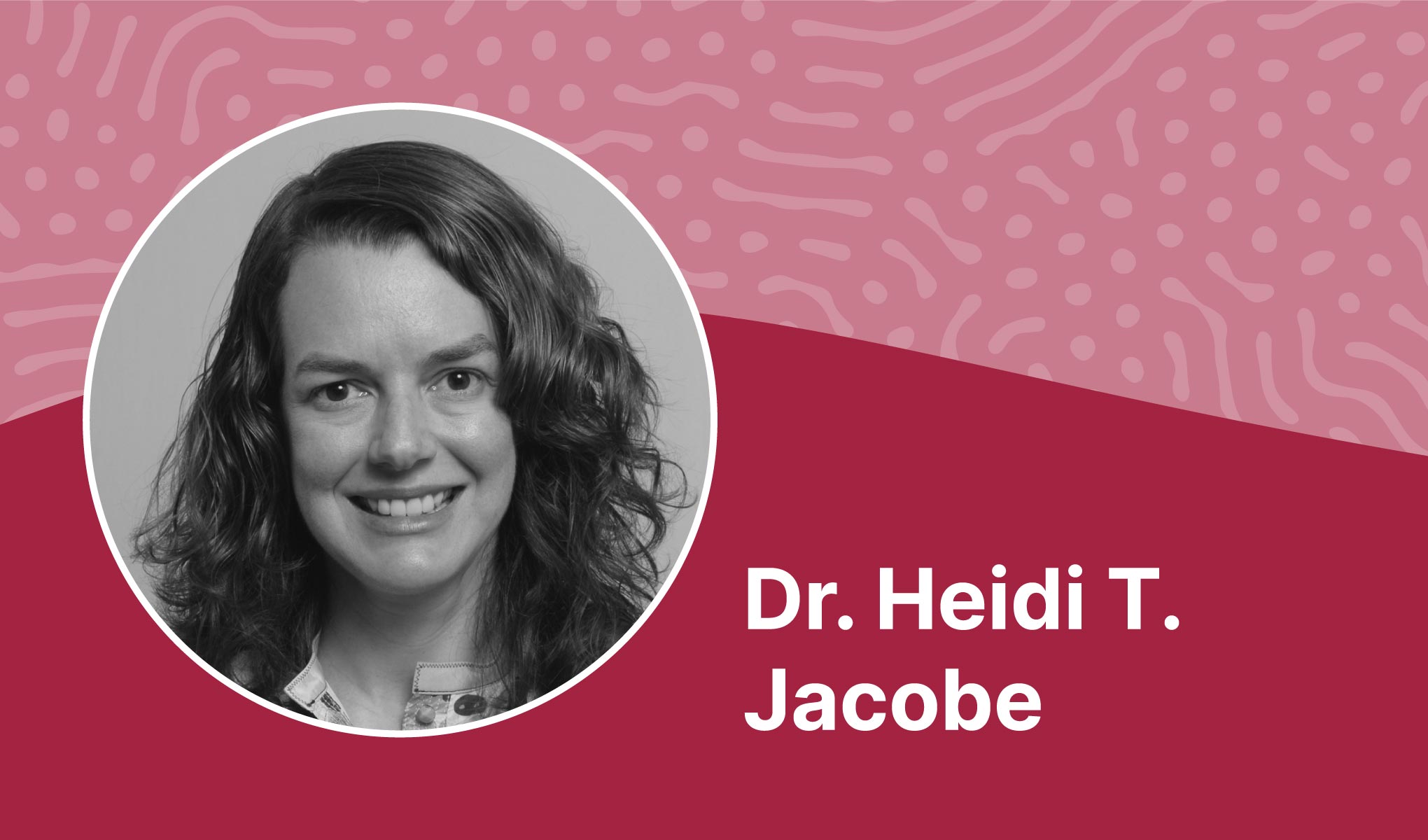Replacing Opinions With Facts
It’s All About the MAC Data
April 2022

Heidi T. Jacobe, MD, MSCS has become a central force in identifying and assessing morphea’s molecular, clinical, and therapeutic realities, and a guiding light in teaching evidence-based care of morphea to the medical students, residents, and fellows at University of Texas Southwestern Medical Center (UTSW), and those in the medical community who see morphea patients. She brings knowledge and hope to patients as well.
“I could not have achieved any of this without my DF awards,” Dr. Jacobe says in gratitude. “The first one, in 2007, supported getting my project started. I was able to get database designers involved and create the MAC—Morphea Adults and Children—cohort and biorepository, which is essential for progress in a rare disease. I could hire a biostatistician to help with some of the initial work—and that was absolutely key!” she adds.
“Then the second award, the following year, helped to support my research time and get my initial results published, and that enabled me to gain my first NIH award— a K23 CDA. My DF awards were absolutely instrumental.”
Dr. Jacobe had discovered early in medical school that she and dermatology were made for each other. It checked all the boxes. But discovering morphea—her driving passion within dermatology—occurred later, after she moved to the department at UTSWMC. It was the unanticipated outcome of her assignment to transform the phototherapy program there into a cutting-edge facility. After adding a UVA1 unit, then a rarity in the United States, patients with morphea began to appear among those referred for treatment.
The dearth of information and research on this rare, highly perplexing, and often disfiguring skin disease, plus the deeply distressing impact on patients’ lives, lit Dr. Jacobe’s fire and defined her commitment. She knew that progress required a patient registry and biorepository, and she honed her research skills and applied for a DF award.
“I’ve provided patients with an online toolkit to help them better understand what’s happening to them and be better able to advocate for themselves and get appropriate care.”
Once the MAC cohort was operational, Dr. Jacobe plunged into a research program of extensive breadth and depth that has steadily replaced opinions with facts and profoundly improved care.
“At this point,” Dr. Jacobe says, “I feel that my biggest impact is through teaching. I provide valid, evidence-based tools for colleagues so they can take better care of morphea patients. And the many medical students, residents, and fellows I interact with at UTSWMC leave here with experience with morphea and an evidence-based perspective for thinking about it—and about other sclerosing skin conditions. And I’ve provided patients with an online toolkit to help them better understand what’s happening to them and be better able to advocate for themselves to get appropriate care.”
Each year, the Dermatology Foundation carefully identifies emerging investigators whose ideas and proven ability to execute their promise to advance patient care.
In 2007 (Medical Dermatology CDA: Immunologic Profiles in Subsets of Morphea Patients) and in 2008 (Patient Directed Investigation Grant: Assessment in Morphea for the Establishment of Noncutaneous Disease [AMEND]), Dr. Jacobe was one of those young investigators. Her DF-supported success led to funding from the NIH and the Scleroderma Foundation, Gilliam Chair in Dermatology, UTSWMC Dean’s Scholar Program, UTSWMC Clinical and Translational Science Award, and KL2 Scholars Program.

